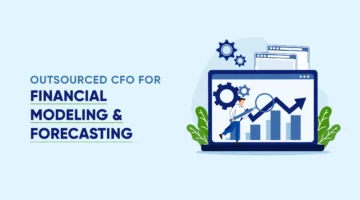Planning For An Economic Downturn
If you pay attention to any economist’s prediction lately, you will likely see the word ‘recession.’ The Federal Reserve has adopted a very aggressive monetary tightening approach to slow inflation which has triggered recessions in the past.
The Stats
According to a study conducted in 2010, 17% of businesses did not survive the recession of 2007. And about 80% of the surviving companies had not rebounded three years after the recession. Only 9% of this study’s sample group did better than before the recession.
Plan, Plan, Plan
“If you fail to plan, you are planning to fail.” ~ Benjamin Franklin
The first thing to know when planning for a recession is that there aren’t any guarantees. Every recession is different. That said, there are general patterns that businesses can use to plan. Strategic planning to protect your business against recession today can make or break your business when hard times hit. On average, recessions last roughly ten months. Business owners should prepare to weather a downturn for 10-12 months to hedge their bets.
As we said before, there aren’t any guarantees. But planning can help you weather the storm and emerge stronger when the economy recovers. Here are some steps you can take to prepare for an economic downturn.
Have All Your Ducks In A Row
- Conduct a financial assessment: Review your business’s financial statements to determine your current financial position and identify any areas that may be vulnerable during an economic downturn.
- Develop a contingency plan: Create a contingency plan that outlines how you will respond to an economic downturn. This may include identifying areas where you can reduce costs, restructuring your business, or seeking alternative sources of revenue.
- Conduct stress tests: Conducting stress tests is a good way for businesses to determine the likelihood of their survival if a recession hits. Companies should use their 13-week cash flow forecast as a base to run a business stress test.
- Evaluate your supply chain: Review your supply chain to identify any risks and develop contingency plans for any disruptions that may occur. This may involve diversifying your suppliers, increasing your inventory levels, or negotiating better payment terms.
- Focus on customer retention: During an economic downturn, it’s essential to focus on retaining your existing customers. This may involve offering promotions or discounts, improving customer service, or developing new products or services to meet changing customer needs.
- Invest in your workforce: Invest in your employees by providing training and development opportunities, promoting from within, and offering incentives for performance. This will help you retain your superstar employees and maintain productivity.
- Maintain a strong cash position: Cash is king. Period. Build up your cash reserves to ensure you can meet your financial obligations and take advantage of possible opportunities.
- Monitor the economic landscape: Stay informed about economic trends and indicators, such as interest rates, inflation, and consumer spending. This can help you anticipate changes in the economy and adjust your strategy accordingly.
- Set sales and metric quotas: As the economy tightens, it is increasingly important to understand what sales reps are doing and whether it is effective and making money. Establishing metrics and quotas can help sales management gain valuable insights into sales activity and improve performance. Metrics and quotas allow you to set goals for your sales team and track progress toward achieving those goals.
- Generate revenue: Increasing sales is critical for generating revenue during an economic downturn. This is especially crucial for businesses that may be facing declining sales or reduced revenue due to the economic environment.
Planning and preparing your business for an economic downturn may seem daunting and impossible. The above mentioned strategies take time, expertise, and much hard work, especially revenue generation. You want to ensure you have an experienced team in place to help you execute your plan. Recession doesn’t have to be all doom and gloom. You can use strategic planning to crush the competition and come out of the recession on top of the game.



